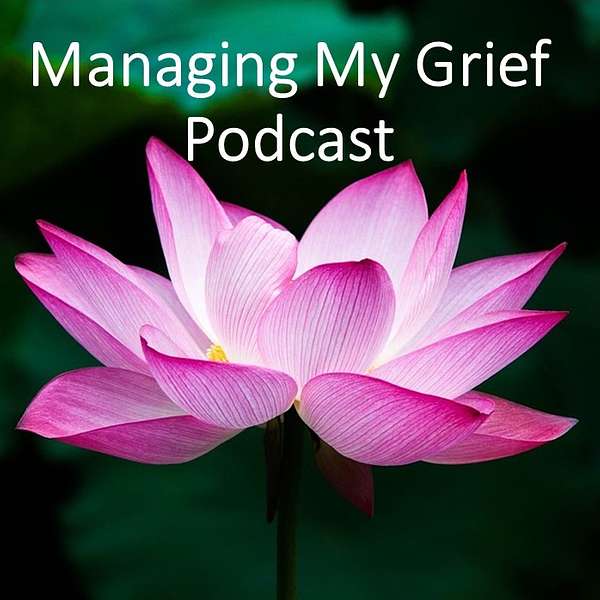
Managing My Grief
Managing My Grief
MMG3: Types of Grief: Anticipatory Grief
MMG3 Types of Grief: Anticipatory Grief
In this particular study done in Sweden, they revealed that 4 out of 10 widows reported that “the pre-loss period was more stressful than the post-loss.” That’s an excerpter from the show. Today, we’ll be discussing Anticipatory Grief and, here’s the intro.
Intro
I’m glad you chose to join me for this discussion on Anticipatory Grief.
Did you know that there are 15 types of grief?
Death alone is challenging to grieve, but there are other losses that occur after losing companionship, such as changes in family roles, financial changes, and loss of dreams of what could be. Keep in mind that the type of grief we’ll be discussing isn’t “good” or “bad,” it’s a mere way for you to identify what you are experiencing. When you understand what you are experiencing, it can be used as a grounding place and it can bring normalcy to the experience, which in itself is gratifying and beneficial.
Anticipatory Grief or what some call Preparatory Grief occurs before death. This type of grief is common to experience when someone finds out that a loved one or they themselves will eventually die, usually related to a chronic illness or a surgery gone wrong.
Its extremely challenging because the person is in an in between place. On one hand wanting to embrace hope that the person will live, while on the other hand trying to cope with the idea of losing the person, all while trying to enjoy the time they have left with the person.
Since anticipatory grief is rarely discussed, people experiencing it often feel isolated. If they were to express their grief, many times people aren’t supportive or don’t accept the person’s pain because the person who is sick is still living.
Think about the partner who finds out their spouse has stage 4 cancer and only have a few months to live. What are some things that partner is told? “How’s your spouse doing?” or “It’s great that you get to spend that last few months together.” Here’s a common one, “It’s unfortunately the doctors found out too late. I’ll keep you in my thoughts and prayers.”
While all these comments sounds supportive and empathetic, in reality, they are superficial and non-supportive to the person experiencing the grief.
True empathetic comments will go something like this, “Wow, I can’t imagine what it’s like to have to watch a spouse slowly die. How are you handling it?” or “This whole situation is tough and I’m sure its hard to handle this alone. If you ever want to talk or have someone to sit with, let me know.” Or “This has to be painful for you. How are you dealing with your upcoming loss?”
Do you hear the difference between the set of comments? One doesn’t truly acknowledge the spouse and the second set sees that spouse for where they are and what they are experiencing. In our fast paced self-centered world, many deliberately choose the first set because it elicits a precise and non-deeply emotional response, resulting in the person commenting feeling as if they supported, but in reality dismissed the grief that the person is experiencing. Yes, it will take time to sit and listen or to sit in silence with someone, but if you truly want to support the person, you have to see the person for where they are mentally and emotionally.
There was a Swedish study done with widows who’s relatives were dying from cancer. The study used the Anticipatory Grief Scale which was created in 1991 that uses the Likert Scale. In this case the scale was 1-5. One meaning Strongly Disagree and 5 meaning Strongly Agree. The widows filled out this self-assessment questionnaire based on what they were currently experiencing . Questions ranges in topics from daydreaming about how things use to be before the diagnose, to feelings, reactions, and future thoughts. In this particular study done in Sweden, they revealed that 4 out of 10 widows re